You finally reach the 30 week mark, and you are rapidly approaching to have your beautiful baby in your arms. There are still (more or less) 10 more weeks to go. Today we are going to talk about your Normal 30 week pregnancy. As usual, you are going to learn in this post about your normal pregnancy symptoms, fetal development, prenatal visit, and baby ultrasound, ready? let’s begin…
How Big Is Your Baby at 30 Weeks?
Your baby at 30 weeks will be as big as a Large Zucchini. The average 30 week fetus weighs about 2.9 to 3.0 lbs. or 1300 grams, and measures about 27 centimeters long.
Normal Pregnancy symptoms at 30 weeks!
Swelling: Mild swelling is to be expected at this time, and will typically go down if you get some rest or put your feet up for a while. Sudden or severe swelling isn’t normal and could be a sign of a problem, let your doctor know right away.
Trouble sleeping: Maybe you can’t sleep because you’re getting nervous or anxious about delivery, or just because your belly getting in the way. Experiment with different strategies for getting some sleep, see what works for you and stick to it. The giant body pillows for pregnant women are awesome, consider one of those.
Heartburn and/or indigestion: As baby starts to crowd your digestive system, it might not work exactly as it did before, be mindful what you eat.
Shortness of breath: As your uterus keeps expanding, the compression against your lungs increases, causing you to feel short of breath. You might find this to be especially true if you’re 30 weeks pregnant with twins. Don’t push yourself too hard, and slow down if you feel yourself gasping for air.
You might be experiencing other symptoms such as Bloating and gases, Constipation, Varicose veins, mild fatigue, stretch marks, Braxton Hicks contractions, vaginal discharge, general Pelvic and Abdominal aches and pains. All those symptoms are normal, all part of the process of growing a baby in your uterus. Try to rest as frequent as you can, stay hydrated, stick to a healthy diet, and give yourself a lot of love, and soon everything will be much better after you deliver.
You might also like!
Useful guide about your newborn baby care.
How to lose baby weight fast after birth.
Sharing is caring!
Fetal development at 30 weeks.
- At 30 weeks your baby’s brain is developing ridges and valleys that provide more space for nerves to grow. Those wrinkles allow for an increased amount of brain tissue, a necessary change as your baby prepares to develop and become smarts for life outside your womb.
- Various brain sections such as memory and speech continue to develop and grow.
- Your baby’s taste buds are well developed so they can respond to sweet and sour tastes by now.
- Regarding the baby movements, they are actively moving and flexing the limbs.
- The baby’s body at this time starts growing faster compared to the head.
- Now that baby’s brain and new fat cells are regulating the body temperature, the lanugo which is that soft, downy hair covering your little human’s body is beginning to disappear.
- Your baby’s bone marrow has completely taken over production of red blood cells (before, tissue groups and then the spleen took care of producing the blood cells). This is an important step for your baby because it means she’ll be better able to thrive on her own once she’s born.
What to know about doctor visits?
You’ll be keeping tabs on how often the baby’s moving and whether his or her movements are consistent from day to day.
Here’s how you do it: Pick a time of day and set a timer. See how long it takes to get to 10 fetal movements it should be less than two hours.
On the routine doctor visits, these parameters are still checked.
Your weight gain.
Blood pressure.
Glucose.
Ketones.
Protein.
Nitrate.
Fundal height.
Fetal presentation.
Heart rate with Doppler(of the baby)
Fetal movements.
Signs of preterm labor.
Edema.
If you have an uncomplicated pregnancy, you probably won’t have a 30-weeks pregnant ultrasound.
Only If any Size discrepancies, fetal breech position and/or signs of preterm labor such as Contractions, Pelvic pressure, Backache, Cramping or bleeding are present, an Ultrasound will be ordered.
Normal 30 week baby ultrasound images.
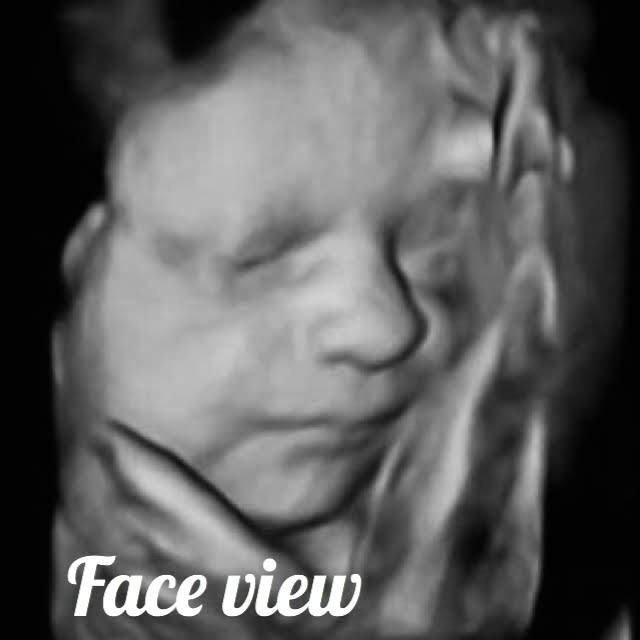
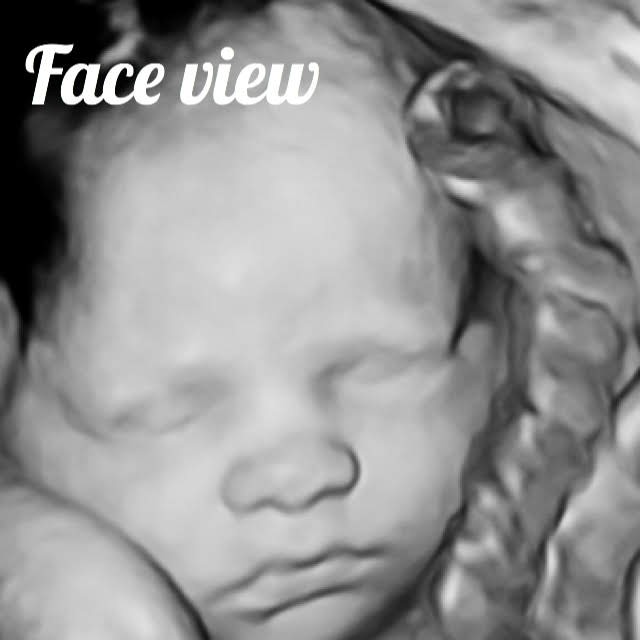
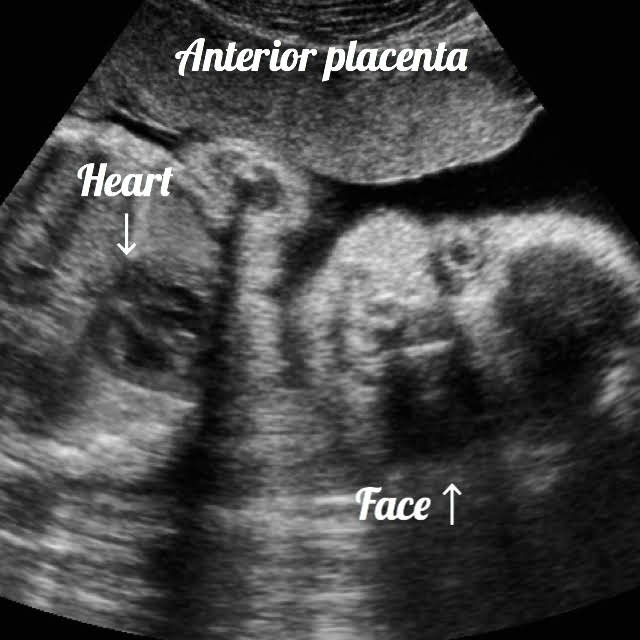
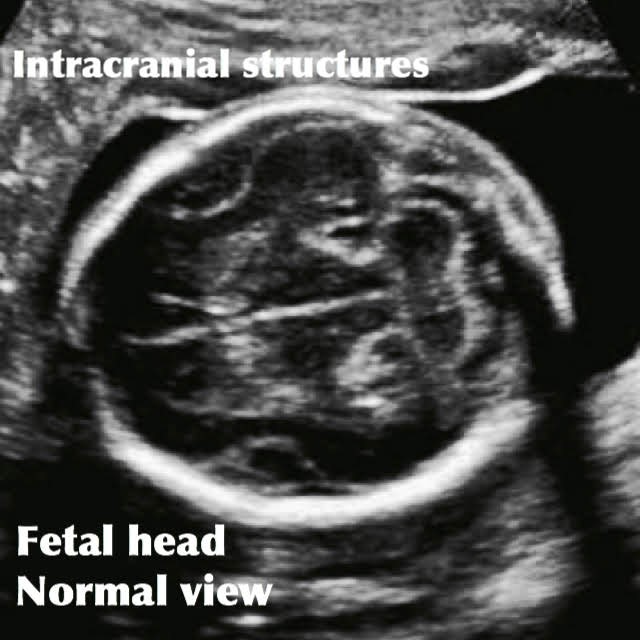

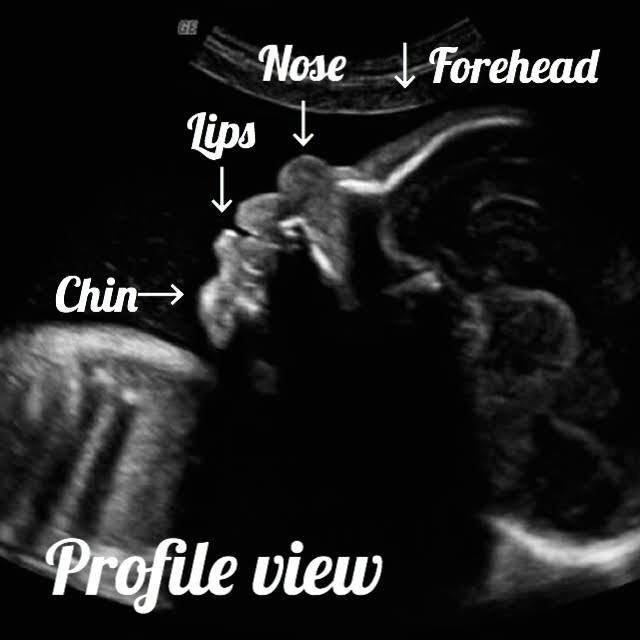
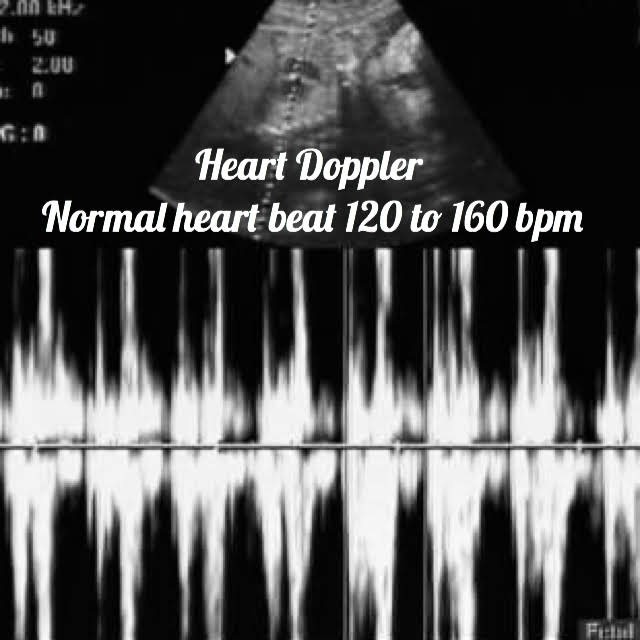
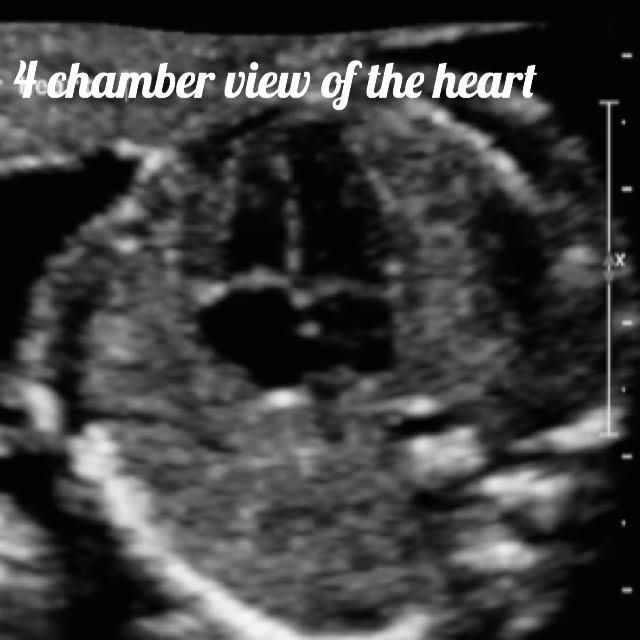
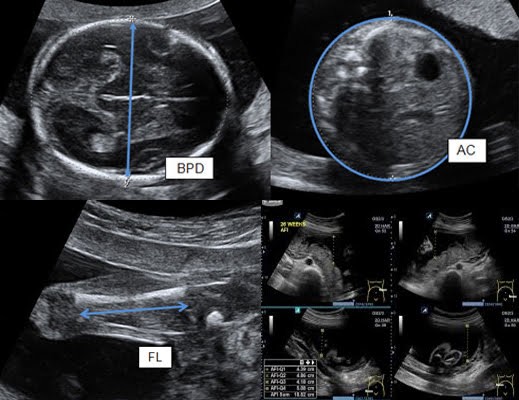
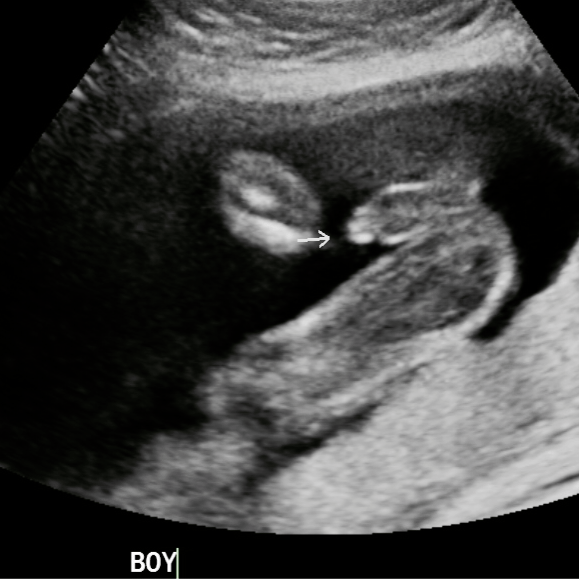
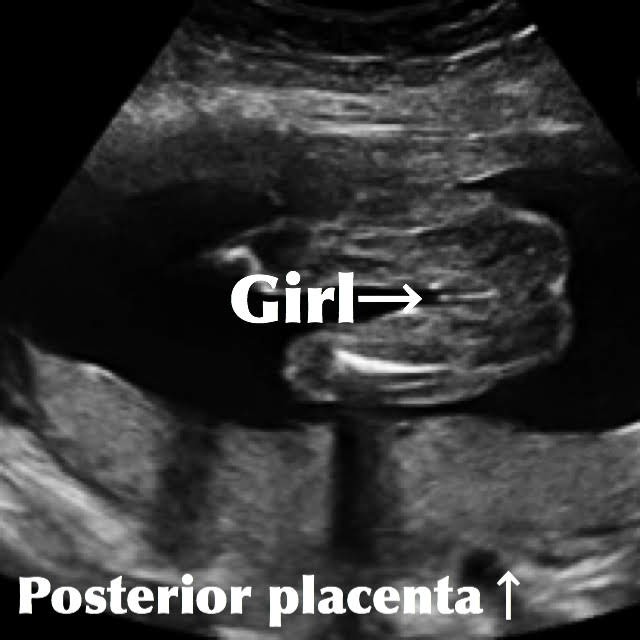
This is also a good time to start getting informed about Cord blood banking.
- Cord blood is what remains in the umbilical cord and placenta following birth. It contains stem cells that can be used to treat some blood diseases and immune system disorders.
- Cord blood banking is a safe and painless procedure and is performed just after baby is born (it takes only a few minutes).
- You can donate to a public facility for free so the cells can be used by others in need, or you can store privately for an upfront fee and an annual storage cost so it’s available only to your family.
- If you do choose to bank cord blood, you should talk to your practitioner about it now so the necessary prep work can be done.
Related post that might be helpful: Is Cord Blood Banking Right For You?
Conclusion about normal 30 week baby ultrasound.
This is the most important information about your 30 week baby ultrasound. We discuss today Fetal development, Prenatal care (doctor visits) and Fetal Ultrasound at 30 weeks.
I hope this information was helpful to you. On my next post, I will be talking about 31 week pregnancy and ultrasound. If you like this post keep sharing to other mommies, we need to empower and help each other out. Let’s keep changing the world, one mamma at a time! Stay tuned for more helpful posts like this one.
Zadi. xo
Disclaimer: Due to HIPPA compliance and regulations all patient information is protected on this site. Also, the information provided on my blog is designed to provide helpful information about the topic and are made with the best of my knowledge. Therefore, is not intended to diagnose or treat any medical condition. For diagnosis or treatments on any medical problems consult your own physician. The author is not responsible or liable for any mistreated pathologies or wrong treatments.











I can’t wait to be married and start making use of this wonderful information you share
Thank you dear, I am very happy you like it, I really appreciate your thoughts
Great information about 30 week baby ultrasound, in a few weeks I am due for a scan, I am very excited about it.